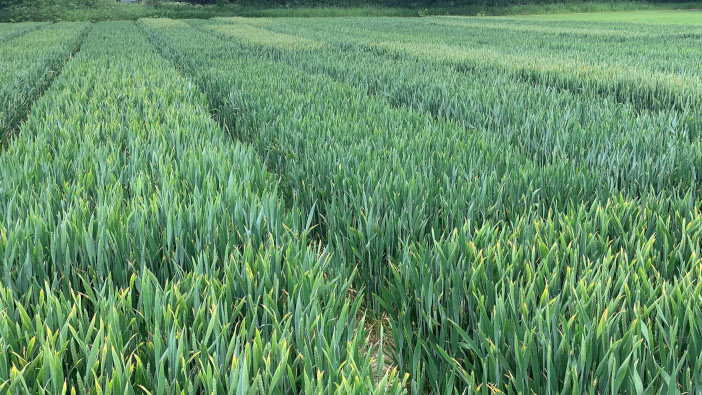New trials conducted by KWS and Orion Future Technologies have suggested that growers may be able to produce sustainable wheat crops with less reliance on fertilisers and chemicals.
Mike Stoker, agronomist with Orion, noted that treating the crop with silicon has shown encouraging results. “Trials using Sirius, a bioavailable liquid silicon, have shown how a wheat crop can take up more essential nutrients including iron, manganese, copper and zinc as well as silicon. This makes the plant stronger and better equipped to resist climatic and biotic stresses, which has resulted in higher yields.”
The trials set out to examine how KWS varieties – including Dawsum, Extase, Palladium, Ultimatum and Zyatt – accumulated silicon. Mike explained that during the uptake of the added silicon, the wheat naturally takes up other beneficial nutrients, while also reducing the intake of aluminium and sodium.
“Ultimatum had the highest accumulation of iron and showed the highest yield increase, a boost of 16%. Sirius was applied at 0.25 litres per hectare, and at 0.5 litres per hectare, to establish if a higher dose would provide better results. Interestingly, most varieties responded similarly to both doses, showing that just a small increase in silicon uptake can provide considerable yield improvements,” he says.
He added that this was likely due to the way Sirius mixes in the tank. “We often find lower doses remain efficacious because bioavailable silicon breaks apart in water, so using less provides the molecules more capacity to separate. It is also important to add that silicon does not have a detrimental effect on any other products being used, including fertilisers and plant protection products.”
Extase showed the most consistent improvements in the uptake of nutrients, with the accumulated benefits bringing about a yield increase of 7%.
“The uptake of boron, copper, manganese, zinc and iron all increased when Extase was treated with Sirius. Added to this, once absorbed, silicon was deposited within and between the cells of the plant which increased dry matter levels, and had a positive effect on yield,” Mike says.
Concluding, Mike says that both iron and manganese are in short supply after months of waterlogging. “As manganese is linked with both disease resistance pathways and winter hardiness, an autumn application of Sirius lends itself to stronger cereal crop performance the following spring. The trials have shown that applications at T2 will provide benefits such as reduced lodging, enhanced drought tolerance and better nutrient flow into the forming grains.”


